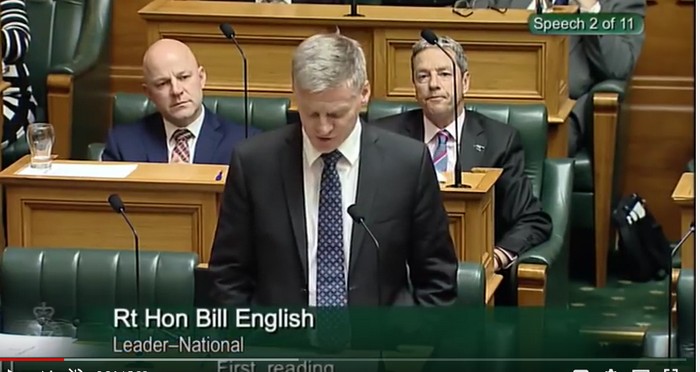End of Life Choice Bill – 1st Reading – Bill English (National)
I rise to oppose this bill, principally for the reason that this House has defeated such legislation twice in the last two decades, and it is this: it removes a principle at the core of the law written to protect everybody, and particularly the most vulnerable, and that is the blanket prohibition against taking the life of another. That is at the core of our criminal law that protects everybody, particularly the most vulnerable. In removing that prohibition, which has been in our law for as long as this country has existed, this Parliament is taking a huge step.
I appeal to our members tonight. I’m sure we’ve all had the experience—I know I have—or know about the experience, of witnessing the suffering, the fear, and the anxiety of a dying person and those around them, and, sometimes, a difficult death. Alongside that personal connection, we have to weigh up, in our role as lawmakers—not just as parents or children or siblings or friends of those who we’ve seen die, but as lawmakers. Our role is not principally to alleviate suffering; our role is to ensure that our society has a set of laws that protect those who most need protection.
Did you know that in our law, section 179 of the Crimes Act, it is a crime to incite the suicide of another person, even if they don’t actually commit it—even if they don’t actually commit it? Why is that there? Because we don’t want people encouraging a depressed disabled young person to think that their life isn’t worth anything. As lawmakers, the reason there is a blanket prohibition is because you are not always the best judge of the value of your life, and the price that our community pays for enabling a doctor to take your life, free of criminal scrutiny, is that many other people are more vulnerable. Their lives will become more fearful, and they’ll become more subject to the pressure to make the judgment themselves that their life has less value and therefore they should make the decision. It is a slippery slope. That is why this bill, with its cold, technical, bureaucratic process of death, tries to look like it’s safe.
We have to weigh it up, and every Parliament up to now has said that the balance between what is enabled for an individual and the cost of that enablement to the rest of society is too big a risk to take. I put the case that as lawmakers that is the question that we need to weigh up: is the gain in personal autonomy—because the research shows people embark on euthanasia principally for autonomy reasons; they may not be suffering that much—worth the broader cost to our community? I don’t think anyone can, in their heart of hearts, believe that this bill will make life safer for the disabled or that it will make our community more warmly embracing of our ageing population. Who pretends that? It won’t—it won’t.
That is why I will oppose it and invite others to. You know, we’re not creating medical procedure here; we’re creating an exemption from the criminal law against killing for a specified group—that is, doctors, who do not want to carry this burden—under some conditions that amount to box-ticking. So I ask the Parliament to consider that very carefully—the removal of the blanket prohibition against taking a life, which should be subject to scrutiny and accountability.







